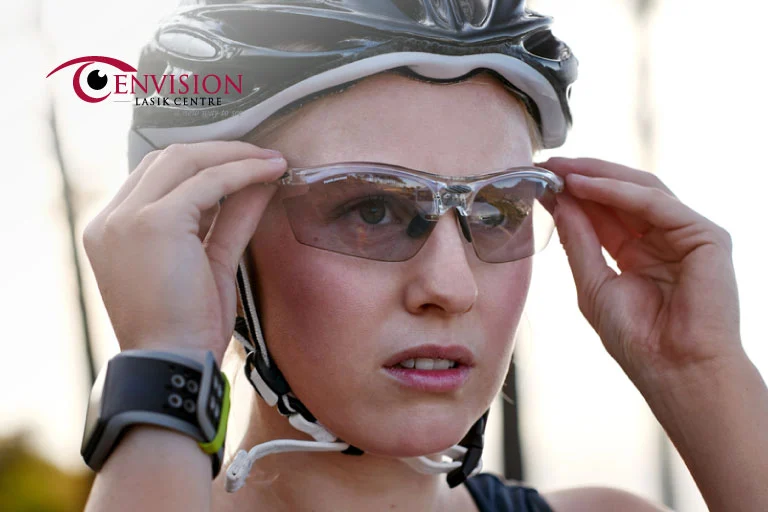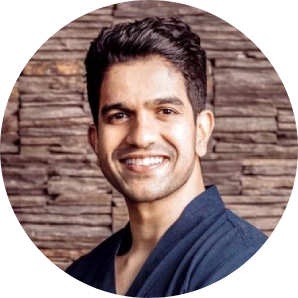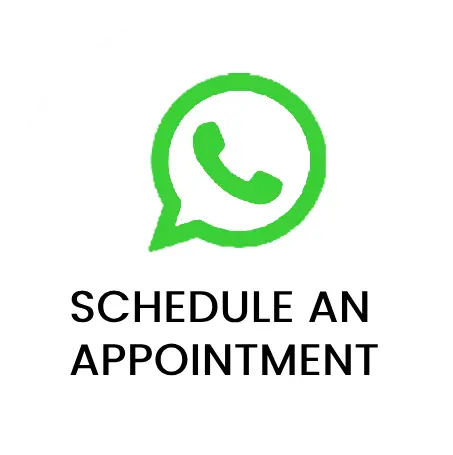Is Laser Eye Treatment Safe for Athletes?

AUTHOR
Ophthalmologist/ Eye Surgeon 13+ Years Exp
MBBS, MS – Ophthalmology
TSMC- TSMC/FMR/05251 (2018)
TREATMENT
CALL US 24/7 FOR ANY HELP
GET IN TOUCH ON
Introduction: What Every Athlete Wonders About Laser Eye Surgery
If you’re an athlete tired of glasses slipping down your nose or contact lenses drying out mid-game, you’ve probably wondered: Is laser eye surgery safe for me? It’s a common question I hear in my clinic from footballers, cricketers, swimmers, and even weekend marathoners.
Let’s get this straight — laser eye treatments like LASIK and SMILE have transformed millions of lives. But when it comes to athletes, especially those in high-contact or vision-critical sports, the decision needs to be well-informed.
In this blog, I’ll explain everything you need to know, share real-life experiences from my practice, and answer the questions most athletes don’t even know they should be asking.
What is Laser Eye Treatment? A Quick Recap
Laser eye surgery reshapes your cornea to correct vision problems like:
- Myopia (nearsightedness)
- Hyperopia (farsightedness)
- Astigmatism (blurred vision due to irregular cornea shape)
The two most common types of laser eye treatments are:
- LASIK (Laser-Assisted In Situ Keratomileusis): A flap is created on the cornea, and a laser reshapes the underlying tissue.
- SMILE (Small Incision Lenticule Extraction): A newer method that uses a tiny incision to remove a small piece of corneal tissue. It’s less invasive than LASIK.
Doctor’s Note: One of my patients, a professional badminton player, chose SMILE over LASIK because it allowed quicker recovery and involved less risk of flap-related issues.
Is It Safe for Athletes? The Honest Answer
Yes — with some conditions. Laser eye treatment is generally safe for athletes, but the type of sport you play, the type of laser procedure you choose, and the timing of your surgery all play an important role in safety and effectiveness.
Let’s break it down by the kind of sport:
⇒Low-contact athletes (runners, cyclists, swimmers):
If your sport doesn’t involve much physical contact — like running, swimming, cycling, or even golf — laser eye surgery is usually very safe.
Both LASIK and SMILE are suitable because there’s minimal risk of any eye injury or trauma. The chances of issues like flap displacement after LASIK are extremely low because there’s no direct impact on the eyes. Many of my patients in these sports recover quickly and return to training within a week.
- Real Example: A triathlete I treated chose SMILE and was amazed at how quickly she got back into her swim-bike-run routine. No more fogged-up goggles or lost contacts mid-race!
⇒High-contact athletes (boxers, rugby players, martial artists):
For athletes in sports where there’s a risk of getting hit in the face or eye, LASIK is usually not the first choice. That’s because LASIK creates a flap in the cornea, and in rare cases, a strong impact can displace this flap — even years later.
Instead, we recommend:
- SMILE: It involves a much smaller incision and no flap, which makes it more stable during high-impact situations.
- PRK (Photorefractive Keratectomy): This is a surface-based procedure without any flap. It takes a bit longer to heal, but it’s the safest in terms of avoiding flap complications.
Key Benefits of Laser Eye Surgery for Athletes
- Freedom from glasses and contacts: No more fogging, slipping, or discomfort during intense training.
- Better peripheral vision: Contacts often limit your side vision.
- Improved reaction time: Crystal-clear, natural vision enhances reflexes and response.
- Reduced risk of eye infections: Especially for swimmers or those exposed to dust and sweat.
Are There Any Risks for Athletes? Let's Be Transparent
Every procedure carries some risk. For athletes, the main concerns include:
- Flap dislocation (LASIK) in contact sports.
- Dry eyes in the initial healing phase.
- Light sensitivity or glare temporarily.
- Recovery time — you may need to skip training for 1–4 weeks depending on the procedure.
Important Note: Serious complications are extremely rare if done by a skilled eye surgeon and followed by proper care.
Best Procedures for Different Types of Athletes
Sport Type | Recommended Procedure | Why |
Boxing/MMA | SMILE or PRK | No flap = less risk |
Football/Cricket | SMILE or LASIK | Fast recovery, low trauma |
Swimming | LASIK or SMILE | Reduced infection risk vs. contacts |
Running/Cycling | LASIK or SMILE | Quick visual recovery |
Doctor’s Insight: I usually advise SMILE or PRK for contact sports and LASIK for others. The technology has advanced so much that personalization is now key.
What’s the Recovery Time for Athletes?
- LASIK: 1–2 weeks for light training; 3–4 weeks for full contact.
- SMILE: 3–5 days for light training; 2–3 weeks for full return.
- PRK: 2–3 weeks for light activity; 4–6 weeks for full training.
Tip: Don’t rush. Let your eyes heal properly. Skipping rest can risk long-term results.
Pre-Surgery Checklist for Athletes
Before surgery, make sure you:
- Stop wearing contact lenses for at least a week.
- Schedule during your off-season or training break.
- Get a complete eye exam.
- Discuss your sport, position, and training load with the surgeon.
Post-Surgery Tips for a Smooth Comeback
- Follow all eye drop instructions to avoid dryness and infection.
- Avoid sweat and dust near the eyes for the first week.
- No rubbing your eyes! (A strict no-no post-LASIK)
- Gradually resume training.
Use protective eyewear if your sport demands it, especially during early recovery.
FAQs – What Athletes Commonly Ask Me
Q1. Will I be able to play professionally after surgery?
Absolutely! Many professional athletes have had laser surgery — including cricketers, footballers, and even Olympians.
Q2. What if I get hit in the eye after LASIK?
Rarely, LASIK flaps can dislodge with strong trauma. That’s why we may suggest SMILE or PRK for high-contact athletes.
Q3. Can I swim after surgery?
Yes, but wait at least 2–3 weeks and use goggles. No swimming in the first week.
Q4. Does laser surgery improve sports performance?
It won’t make you faster—but clearer vision can improve coordination, confidence, and reaction speed.
Cost and Long-Term Value for Athletes
Yes, laser eye surgery can feel expensive upfront (₹60,000 to ₹1,20,000 per eye in India), but think of it like investing in a high-performance tool:
- No more contact lens refills
- No more broken glasses
- Better performance, fewer distractions
Conclusion: Is Laser Eye Treatment Safe for Athletes?
100% yes — if done right. The technology is safe, time-tested, and incredibly precise. The key is choosing the right procedure, surgeon, and timing. Whether you’re a pro or a passionate weekend warrior, clearer vision without glasses or contacts can be a game-changer.
As a doctor, I’ve seen firsthand how laser eye treatment can boost not just vision, but confidence and freedom. My only advice: don’t rush it. Do your research, talk to your doctor, and go in with a game plan.
Call to Action
Still unsure if laser eye surgery is right for your sport? Book a consultation. Let’s figure out the best vision solution so you can stay focused on your game—not your glasses.
Your eyes. Your sport. Your advantage.
AUTHOR
Ophthalmologist/ Eye Surgeon 13+ Years Exp
MBBS, MS – Ophthalmology
TSMC- TSMC/FMR/05251 (2018)
TREATMENT
CALL US 24/7 FOR ANY HELP
GET IN TOUCH ON



